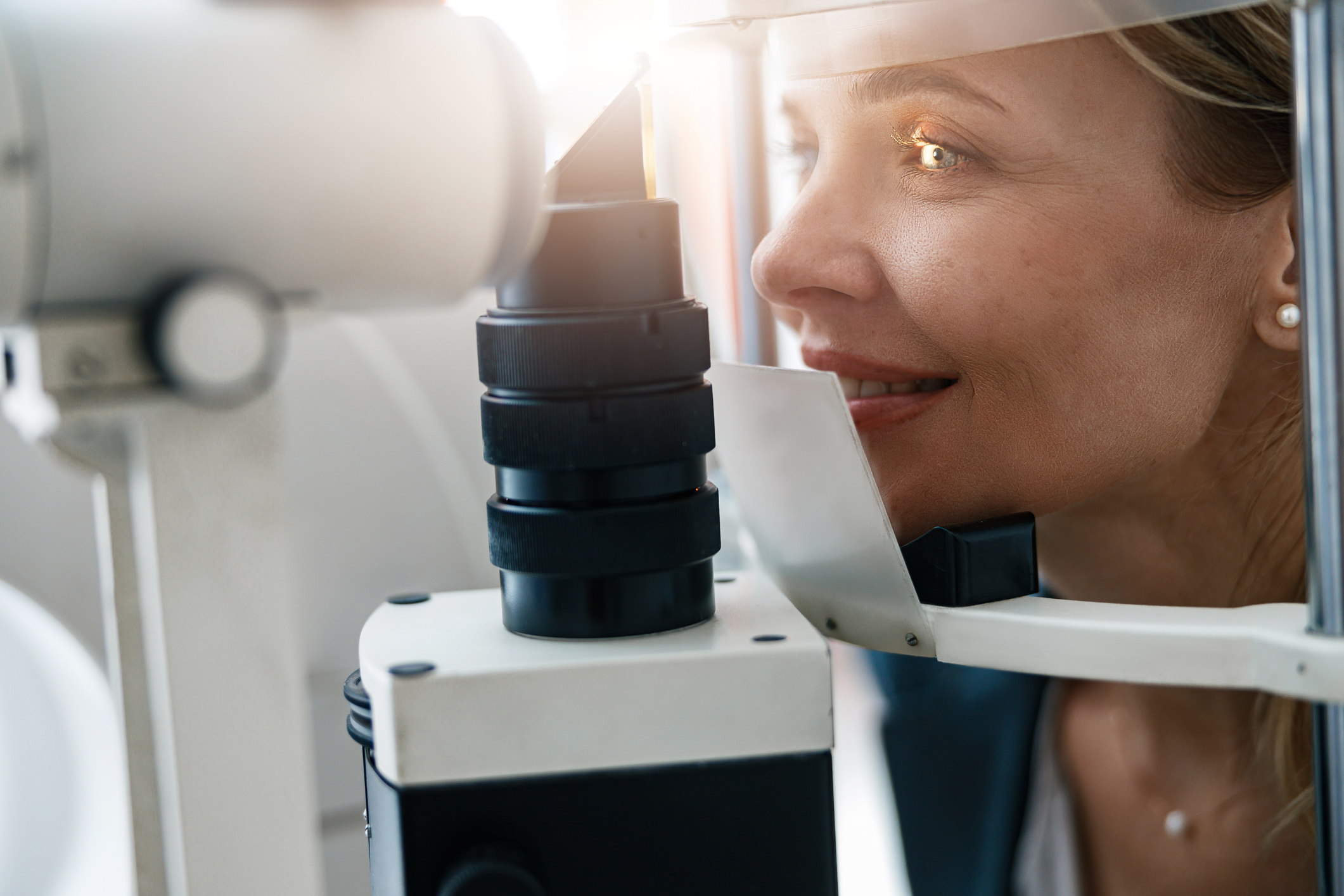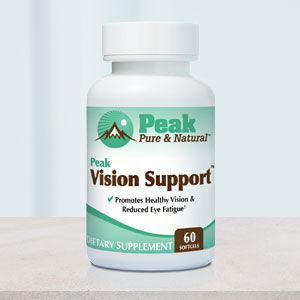Get Easy Health Digest™ in your inbox and don’t miss a thing when you subscribe today. Plus, get the free bonus report, Mother Nature’s Tips, Tricks and Remedies for Cholesterol, Blood Pressure & Blood Sugar as my way of saying welcome to the community!
The ‘new and improved’ treatment that slows AMD

Age-related macular degeneration, or AMD, is a disease that leads to the progressive death of retinal cells in the macula, the part of your retina that provides clear central vision. And for those unlucky enough to have the disease, it steals their eyesight bit by bit.
There’s no cure for AMD, but research over the last 25 years has focused on ways to slow the progression to try to avoid severe vision loss.
That’s why, in 1996, the Age-Related Eye Disease Study (AREDS) was launched. It was hailed as an amazing success after finding that a formulation of nutrients, including vitamins C, E, copper, zinc and beta-carotene had the power to significantly slow AMD progression from moderate to late disease.
But there was soon found to be a fly in the ointment…
Recent research showed that people who smoked and took beta-carotene faced a much higher risk of lung cancer.
Definitely, not a good trade-off.
Well, believe it or not, in looking at how to alleviate that problem, AREDS researchers were able to come up with a new formula that works even better at reducing the risk of AMD progression!
AREDS2: the next generation
The researchers decided on a new tactic. In 2006 they began AREDS2. They added the antioxidant combo of lutein and zeaxanthin, two vision-supporting nutrients in their own right, to the mix and ditched the beta carotene. Then they put it to the test…
“Because beta-carotene increased the risk of lung cancer for current smokers in two NIH-supported studies, our goal with AREDS2 was to create an equally effective supplement formula that could be used by anyone, whether or not they smoke,” said Emily Chew, M.D., director of the Division of Epidemiology and Clinical Application at the National Eye Institute (NEI), and lead author of the study.
While participants who never smoked were kept on the original AREDS nutrients, past smokers were given 10 mg lutein and 2 mg zeaxanthin (and the other nutrients) instead of beta carotene and followed for five years.
And at the end of the study, the results confirmed they made the right choice…
The news about the new formula gets better
Not only did the addition of lutein/zeaxanthin reduce the risk of AMD progression by approximately 26 percent, it did so without increasing the risk of lung cancer.
So, after the completion of that five-year study period, the study participants were all offered the final AREDS2 formation that included lutein and zeaxanthin instead of beta-carotene.
Then the researchers continued collecting information on the original AREDS2 participants to see whether their AMD had progressed to late disease, and whether they had been diagnosed with lung cancer.
Even though all the participants had switched to the formula containing lutein and zeaxanthin after the end of the study period, the follow-up study continued to show that beta-carotene increased risk of lung cancer for people who had ever smoked by nearly double.
There was no increased risk for lung cancer in those receiving lutein/zeaxanthin. In addition, after 10 years, the group originally assigned to receive lutein/zeaxanthin had an additional 20% reduced risk of progression to late AMD compared to those originally assigned to receive beta-carotene.
Said Chew, “This 10-year data confirms that not only is the new formula safer, it’s actually better at slowing AMD progression.”
Lutein and zeaxanthin are commonly found in green leafy vegetables (e.g., kale, spinach, broccoli, peas and lettuce), summer squash, pumpkin, carrots, pistachios and egg yolks. These are all foods that belong in a well-rounded diet.
But don’t leave your eyesight to chance. Follow the advice of the researchers and supplement these eye-saving nutrients if possible. And don’t forget the other nutrients in their formula: vitamin C, vitamin E, copper and zinc. You’ll find this very same advice on the American Academy of Ophthalmology’s website.
To know the signs of AMD and other eye disorders, click here.
Editor’s note: Did you know that when you take your body from acid to alkaline you can boost your energy, lose weight, soothe digestion, avoid illness and achieve wellness? Click here to discover The Alkaline Secret to Ultimate Vitality and revive your life today!
Sources:
Benefit of supplements for slowing age-related macular degeneration – ScienceDaily













